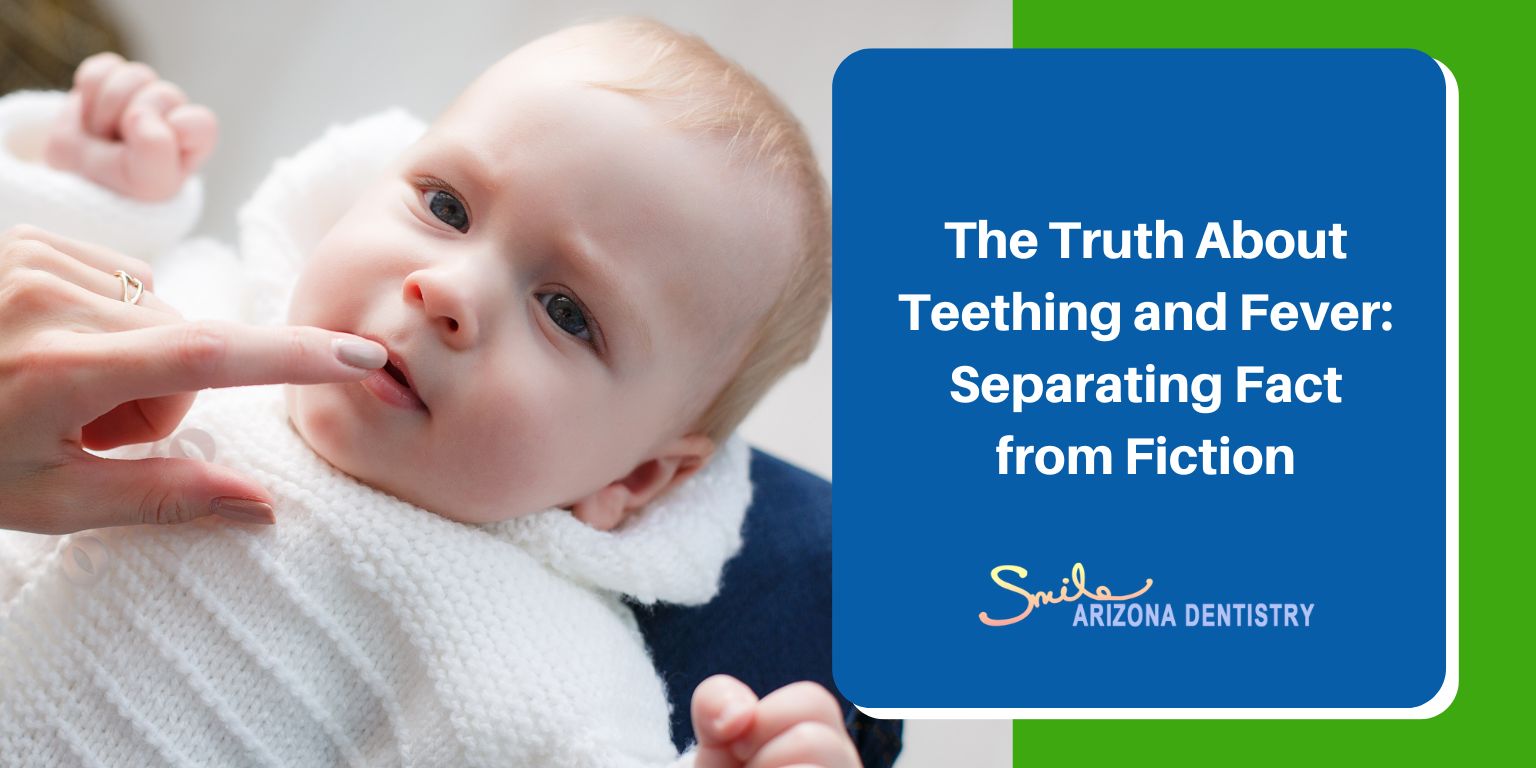


Many parents often hold the view that fever and teething are related, with some even ascribing fevers to the teething process itself. However, healthcare experts continue to debate the validity of the scientific research supporting this presumption. In this article, we investigate the potential connection between teething and fever and what are some warning signs you must look out for when your child is teething.
It is difficult to decidedly say whether teething causes fever. Although low-grade fever is not a typical teething symptom, you may notice your child becoming feverish. This form of fever has no established origin, but it is typically related to the inflammation and irritation brought on by tooth eruption (the process in which teeth begin to emerge through the gums and become visible in the mouth).
With teething, fevers can frequently reach 100 degrees Fahrenheit, although they typically go away on their own after a few days. It is usually a good idea for parents to keep a portable thermometer on hand so they can monitor the intensity of fevers. Even if it might not be necessary, it is advised to visit a doctor if the fever lasts for more than a few days.
One of the long-held beliefs for fever while teething is the natural inflammatory response that takes place when teeth begin to emerge through the gums. Your child's body temperature may rise slightly as a result of this and may also cause minor irritation and inflammation.
Another factor that can contribute to fever during teething is the tendency of children to put objects in their mouths to relieve discomfort. The possibility of your child getting ill rises if your child has a tendency to use objects to relieve discomfort since the toys and other items they put in their mouths might be contaminated with bacteria and germs.
Teething can also disrupt your child’s sleep patterns, resulting in exhaustion and a weakened immune system. This debilitating immunity can make your child more vulnerable to infections, which can, in turn, lead to a fever.
Apart from fever, there are also other symptoms of teething you may notice in your child:
If your child feels discomfort and has a fever, you can try the following remedies to relieve their distress:
Although teething fever is generally not a cause for concern, there are situations where it is important to contact your child's doctor. If your child has a temperature that is above 100.4 degrees Fahrenheit, lasts longer than a few days, or doesn't respond to over-the-counter medication, this may be a sign of an infection or another illness that requires medical attention.
Additionally, if your baby's fever is accompanied by symptoms such as vomiting, diarrhea, a rash, or difficulty breathing, it's important to seek medical assistance. Refusal to eat or drink can also result in dehydration, which requires prompt medical attention. Finally, if your child exhibits unusual behavior, such as excessive crying, lethargy, or difficulty waking up, this may indicate a more serious condition.
If your child is experiencing teething, it's important to seek the expertise of a dental professional. Visiting a dental clinic can ensure that your child's teeth are developing properly and addressed any potential issues At Smile Arizona Dentistry, we provide guidance on proper dental care for your child, and our dental experts are here to ensure a healthy and happy smile for your little one. Contact us today!